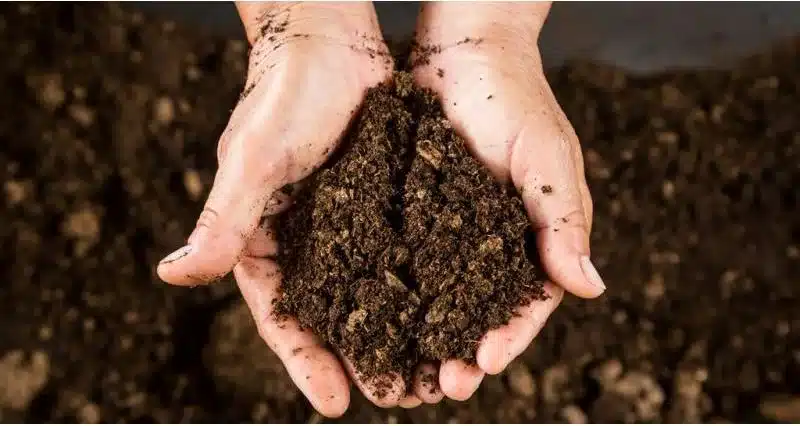Soil health, plant health for human health. It’s right there on our logo and at the core of everything we do. Why? Because human wellbeing can only happen when soils are healthy. It is a direct relationship.
Let’s start by taking a look at the point at which we have arrived. In the last 50+ years, intensive, industrial farming practices have taken their toll on the world’s soils:
- Soils have become poisoned and depleted
- Pesticides and herbicides (developed from chemical warfare) are sprayed on crops and fields
- Toxic chemicals affect the nervous systems of Earth’s living creatures – insects, fish, birds, animals and humans
- Other small organisms are also killed
- Nitrogen leaching occurs when there are no nitrogen-fixing bacteria
- Extensive irrigation washes minerals away from the roots
- In addition, plants that get their water supply from irrigation don’t need to form long roots, which damages symbiotic relationships in the soil and with soil microorganisms
- And the list goes on …
Doesn’t paint a good picture for the environment, does it? One also has to question the effects of industrial agriculture and harmful substances in farming on human health.
Nutrition is the foundation of a healthy body
It’s no secret that there is a direct connection between nutrition and optimal health. It’s a fact acknowledged by science, the medical world and ourselves. We all know how we feel after eating a healthy meal vs. an unhealthy one.
When it comes to reducing the risk of chronic disease, practical guidance issued by many health practitioners includes:
- Eating a balanced, plant-rich diet in moderation
- Maintaining a physically active lifestyle
- Keeping body weight within a healthy range
What some people may not be aware of (or think about) is that there is also a direct relationship between minerals in the soil and the minerals in the body. This is because the soil’s mineral content determines the mineral content of the food that grows in it or feeds off it.
The link between soil health and human health
A recent article in the European Journal of Soil Science discussed the link between soil security and human health. It states that “soil has a considerable effect on human health, whether those effects are positive or negative, direct or indirect.” As an important source of nutrients in our food supply, as well as medicines such as antibiotics, society must value the role soil plays in creating human health. This value is demonstrated in the way that the soils are managed or treated, in agriculture and other industries.
As the world population and demands continue to grow, so does the need to produce plentiful, high-quality food. In order for this to happen, the soil needs to be able to pass nutrients up the food web into plants, as well as act as a purifier of toxins. The use of harmful agrichemicals disrupts this system.
Chemical agriculture becomes a vicious cycle of ‘chemical warfare’. When chemicals are applied, organisms die or fight back and mutate. This requires the application of more chemicals, and a system that becomes out of control. Like a drug user, the plant becomes dependent on its supplier, breaking the symbiotic relationship with mycorrhizae and rhizobium. As a result, soil microbes die from a lack of food.
Read more about the link between plant health and soil microbial health
In turn, this disruption of the equilibrium in the soil disrupts the equilibrium of the human bodies which feed off it.
How does soil health affect human health?
Sustainable, regenerative and conservation agriculture focus on soil health
By promoting soil health, minimising water use, lowering pollution levels and reducing the need for chemical pesticides, there’s no doubt that sustainable agriculture practices are better for the natural environment. Now, growing evidence shows that farming sustainably also results in better human health.
The benefits of sustainable agriculture for human health can be loosely broken down into two categories:
- The benefits of people consuming sustainably-grown produce
- The human health benefits of using sustainable farming practices
Consuming sustainably-grown produce
Although ‘sustainable’ doesn’t mean ‘pesticide-free’, sustainable farming and organic foods generally contain fewer synthetic pesticides than conventionally-grown produce. Sustainable farming limits the use of inorganic resources in production. As a result, human health is enhanced through the availability of more chemical-free food. If a person eats sustainably-grown produce instead of produce sprayed with pesticides, they are going to experience less exposure to pesticide residues that have been tied to an increased risk of certain cancers.
Another benefit of organically or sustainably-grown produce is its nutritional benefits. Emerging science is revealing that, in addition to lacking the toxic residues of conventional foods, organic food is also more nutritious. A study published by The Organic Center reveals that organic food is higher in:
- total antioxidant capacity
- total polyphenols
- two key flavonoids – quercetin and kaempferol
A study published in 2015 showed the benefits of switching children to an organic diet in order to reduce their exposure to organophosphates – a class of pesticides that includes toxic chemical compounds. The study compared the concentrations of organophosphorus pesticides and their metabolites in the urine of children eating conventional vs. organic diets. The results indicate that for certain types of pesticides, diet is the primary route of exposure. This means that switching children to an organic diet decreases their exposure substantially, possibly improving health indicators as a result.
Human health benefits of sustainable farming practices
Looking at pesticide residues in food alone ignores the fact that many foods that do not end up with high pesticide residues still involve toxic chemicals in production processes, putting farm workers’ health at risk.
Farmers and other agricultural workers using chemical pesticides experience occupational exposure to these harmful substances; much higher exposure than the average citizen, no matter what food they’re eating. This has a number of negative effects:
- Some studies have reported increased risks of certain types of cancers among farm workers who spend years exposed to toxic chemicals.
- Endocrine-disrupting pesticides reveal another chronic health effect of pesticide exposure.
- Children are highly susceptible to pesticides, and those living in areas with high pesticide use are at risk of adverse health effects.
- There can be devastating effects on the unborn babies of pregnant women exposed to pesticides.
When using sustainable farming methods, farm workers are exposed to fewer pesticides and benefit from better health as a result. Families of farm workers and local communities who are at risk of harmful exposure from pesticide drift and water contamination also benefit from sustainable agriculture and less exposure to toxic pesticides.
How to support sustainable agriculture as a consumer
- Purchase organically-produced foods
- Shop at farmers’ markets
- Grow your own veggies in home, school, and community gardens
- Participate in community-supported agriculture
How to start farming more sustainably
With increasing consumer pressure to produce in a more sustainable way, many farmers around the world are seeking ways to implement long-term sustainability measures. At Zylem, our team is passionate about bringing sustainability to the people – both the producers and consumers.
The best place to start is with better soil health, which naturally decreases (and can even eliminate) the need for harmful pesticides. At Zylem, we know that the soil is one of our most important resources. Like the organs in the body, each different organism in the soil has a role to play in making the whole ecosystem survive. That’s why farmers need to focus on building healthy, well-balanced soils that can support a diversity of life – and thus human health.

About the Author: Alex Platt
Alex is Business Development Manager at Zylem. He’s inspired by the potential of regenerative farming and takes a special interest in the technology and products that are moving agriculture in a more sustainable direction.

